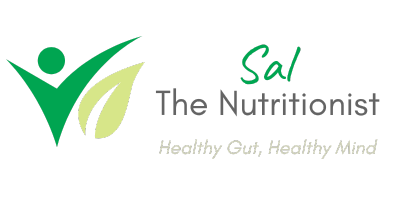Statistics show that approximately 80% of women suffer from hormonal imbalances but the gut-hormone connection is little known.
The human body is a complex and interconnected system, where different organs and functions influence each other in ways we are only beginning to understand. One fascinating area of study is the relationship between women’s hormones and the gut. Research has shown that the health of the gut can have a significant impact on hormone levels and vice versa.
The Gut Microbiome and hormone balance
The gut microbiome, which consists of trillions of microorganisms living in the digestive tract, plays a crucial role in maintaining overall health. These microorganisms help with digestion, nutrient absorption and immune function. But their influence extends beyond the digestive system.
Recent studies have shown that the gut microbiome can also impact hormone levels, particularly estrogen and progesterone. For example, certain bacteria in the gut can metabolize oestrogen, affecting its levels in the body. Disruptions in the gut microbiome, such as those caused by antibiotics, poor diet, or stress, can lead to imbalances in hormone levels.
Some of the signs of hormone imbalance
- Mood swings
- Fatigue
- Insomnia and poor quality sleep
- Heavy and painful periods
- Unexplained weight gain
- Skin problems
- Headaches
Dysbiosis and the gut-hormone connection
There are many factors that can cause an imbalance in gut bacteria, ranging from environmental toxins to stress and medication intake (antibiotics for example). These can irritate the lining of the gut, causing inflammation, nutrient deficiencies and a range of health problems, including hormone imbalances.
One of the hormones that is particularly affected by gut health is oestrogen. Oestrogen in the body is processed by a collection of bacteria in the gut, which is called ‘estrobolome’. Estrobolome includes the enzymes which are responsible for breaking down hormones and healthy bacteria in the gut which go on to feed the rest of our body. Estrobolome also controls how your body breaks down and eliminates excess oestrogen once its function is over. This process is commonly referred to as the ‘oestrogen metabolism’. As a result, an imbalance in healthy gut bacteria can contribute to a deficiency or excess of oestrogen, which can lead to imbalances in other hormones.
Leaky Gut and the gut-hormone connection
Another way the gut can impact hormone balance is through a condition known as leaky gut syndrome or intestinal permeability. In this condition, the lining of the intestines becomes more permeable, allowing harmful substances like bacteria, toxins and undigested food particles to leak into the bloodstream. This can trigger an immune response and inflammation, which can disrupt hormone production and balance.
Leaky gut syndrome has been linked to conditions such as polycystic ovary syndrome (PCOS), endometriosis and autoimmune thyroid disorders, all of which involve hormonal imbalances. By addressing gut health and reducing intestinal permeability, it may be possible to improve hormone balance and alleviate symptoms of these conditions.
Stress, cortisol and the gut-hormone connection
Stress is another factor that can influence both hormone levels and gut health. When we are stressed, the body releases cortisol, a hormone that can affect digestion and the gut microbiome. Chronic stress can lead to imbalances in cortisol levels, which in turn can impact the gut, leading to issues like inflammation and altered gut motility.
In addition, cortisol can also affect the balance of other hormones, such as oestrogen and progesterone, further complicating the relationship between stress, gut health and hormone balance. Managing stress supports both gut health and hormone balance in women.
Supporting Gut Health for Hormone Balance
Maintaining a healthy gut is essential for supporting hormone balance in women. What can you do to improve the health of your gut? You can start by removing the following:
- Common reactive foods – usually dairy, eggs, gluten. If you’re unsure which foods/drinks you’re reacting to, do the Biocompatability Food Test.
- Refined carbohydrates and sugar.
- Artificial sweeteners.
- Unhealthy fats.
- Additives and preservatives.
- Environmental toxins.
- Excess caffeine/alcohol.
- Unnecessary medications.
In conclusion, the gut plays a crucial role in maintaining hormone balance in women. By supporting gut health through diet, stress management and other lifestyle changes, women can help promote overall hormonal balance and improve their health and well-being.
If you need help with your hormones and improving the health of your gut, book a FREE health assessment Zoom call here.
If you’d like to find out more about the Biocompatability Food test and the GI Map stool test which are included in the Mind Your Gut Program, we can discuss these in the health assessment call.

